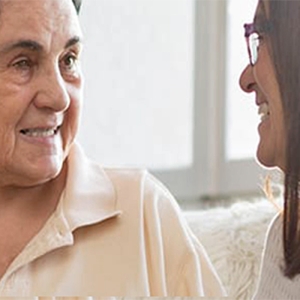How to Become a Licensed Clinical Social Worker (LCSW)
June 10, 2019- Practice
What Is a Licensed Clinical Social Worker?
Licensed clinical social worker (LCSW) is one of several social work licenses granted by states nationwide, although the actual title may vary by state. An LCSW is a practitioner who has been approved by a state licensing board to provide comprehensive mental health services and assume greater responsibilities than a social worker who is not licensed.
The requirements for how to become an LCSW differ by state, but in general, all aspiring LCSWs must earn a Master of Social Work (MSW) degree, complete additional coursework and clinical training, and pass licensure exams.
Contact your state's social work licensing board to learn the requirements to become an LCSW.
Why Become an LCSW?
LCSWs may have the opportunity to:
- Offer general counseling, bereavement counseling and crisis intervention for individuals, couples, families and groups.
- Supervise other social workers at their place of employment.
- Manage agency programs (e.g., mental health).
- Provide consulting for health plans, schools or businesses.
- Serve as expert witnesses during court cases.
- Practice independently (e.g., private practice).
Steps To Become an LCSW
Although the LCSW requirements differ by state, here is a general outline of the licensure process.
1. Earn a Master of Social Work, and Complete Additional Coursework
Individuals looking to become an LCSW must earn a master's degree in social work from an accredited school of social work.
After earning a master's degree, students who want to become an LCSW must complete additional coursework. As with all LCSW requirements, these clinical hours and courses vary by state.
The National Association of Social Workers (NASW) and other organizations offer the required coursework in person or online. Some employers may also provide or cover the cost of courses you need to become an LCSW in your state.
2. Complete Additional Supervised Clinical Experience
Aspiring LCSWs must complete additional hours of post-MSW supervised experience, such as clinical psychosocial diagnosis, assessment and treatment; face-to-face individual or group psychotherapy/counseling; client-centered advocacy, consultation and evaluation; and research. As with all LCSW requirements, these clinical hours vary by state.
3. Pass the Required Licensing Exams
States have different requirements to become an LCSW, so it's important to verify which examinations you must pass to earn your license.
After earning their master's degree, students who want to become an LCSW may have to complete pre-licensure coursework on a variety of topics that may include aging and long-term care, child abuse assessment and spousal and partner abuse. Often, this coursework is delivered in the form of brief classes; however, this may vary according to each state's requirements. Please check with your state licensing board for more information.
Many states require those interested in becoming an LCSW to apply for, take and pass the following exams:
- Association of Social Work Boards (ASWB) national clinical exam
- A law and ethics exam (varies from state to state)
4. Renew Your License
Once you become an LCSW, you must renew your license within the registration period for your state by completing continuing education units (CEUs). This ongoing education ensures that you are continually meeting the high standards represented by your license.
Additional Online Licensing Resources
When researching how to become a licensed clinical social worker in your state, we recommend that you consult the following websites for information.
- Association of Social Work Boards (ASWB): The ASWB is a nonprofit organization that comprises social work regulatory boards within the United States and Canada. LCSW examinations are owned and maintained by this organization.
- National Association of Social Workers (NASW): The NASW has more members than any other professional social work membership organization in the Currently used by most social work licensing boards, the NASW Code of Ethics sets forth the values, principles and standards that guide social workers' conduct in all practice areas.
How To Become a Licensed Clinical Social Worker in Your State
Because each state has its own regulations and requirements that are always evolving, it is vital to contact your state's licensing board for current information on how to become an LCSW.
Below, are links to LCSW requirements in seven states across the US.
How To Become an LCSW in Other States
After becoming an LCSW, you may decide to practice in a different state than where you earned your license. The new state will require you to provide examination scores, transcripts and other documentation that you used to get your current license. It is possible that your ASWB examination scores can be transferred to your new area; joining the ASWB Social Work Registry may simplify the process.
Check with the licensing board in your new state or province to verify what you need to do before you can practice as an LCSW.
Take the Next Step
The USC Suzanne Dworak-Peck School of Social Work offers a traditional and advanced standing Master of Social Work online. To take the next step toward your career in social work, request information today.
Content by: The MSW@USC, the online Master of Social Work program at the University of Southern California.
To reference the work of our faculty online, we ask that you directly quote their work where possible and attribute it to "FACULTY NAME, a professor in the USC Suzanne Dworak-Peck School of Social Work” (LINK: https://dworakpeck.usc.edu)
